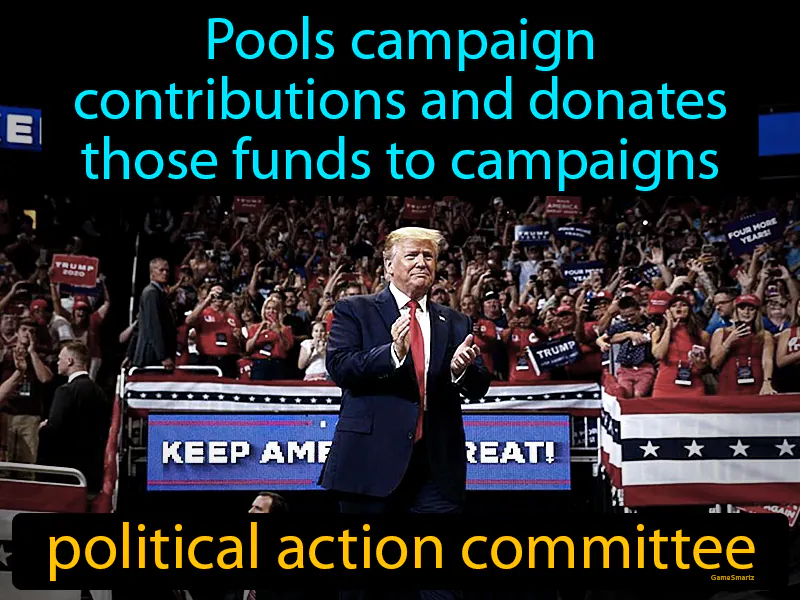Political Action Committee
Political Action Committee: Easy to understand
In the early 21st century, especially from 2010 to 2019, political action committees (PACs) became increasingly influential due to the Citizens United Supreme Court decision in 2010. This ruling allowed PACs to spend unlimited money on campaigns, which significantly impacted elections by giving more power to wealthy donors and corporations. The importance of PACs at the time was due to their ability to influence political outcomes and policy decisions through financial contributions. Today, PACs continue to play a crucial role in politics by supporting candidates who align with their interests, affecting laws and regulations that impact everyday life. For example, a PAC funded by environmental groups might help elect politicians who support renewable energy policies, which can lead to more sustainable practices and affect local job markets.

Practice Version

Political Action Committee: Pools campaign contributions and donates those funds to campaigns. Political action committee. In U.S. history, a political action committee PAC is an organization that gathers donations to support or oppose political candidates and influence elections.